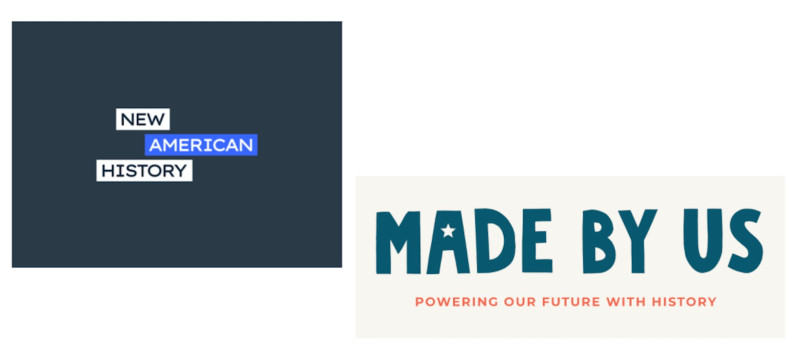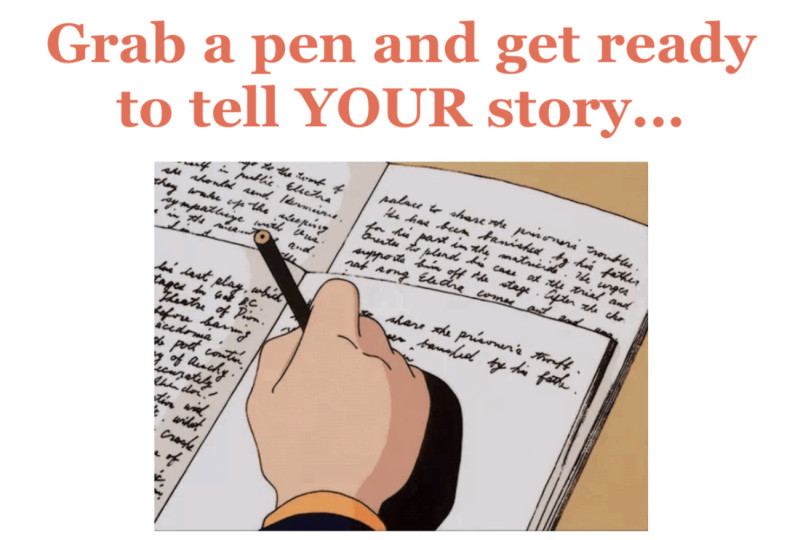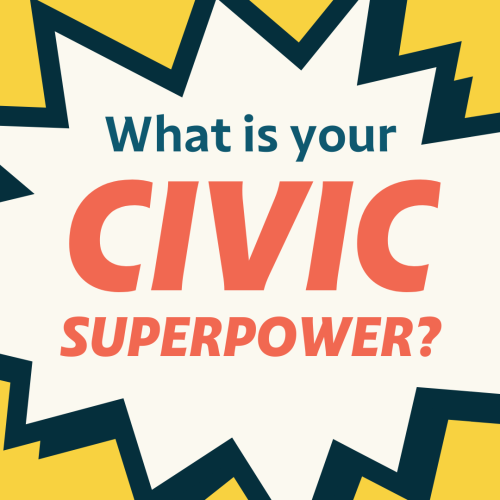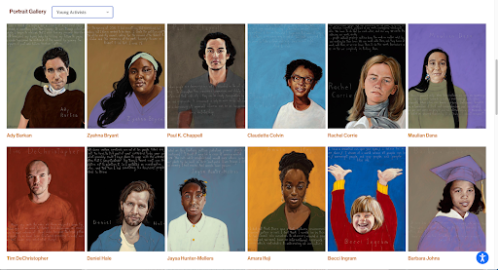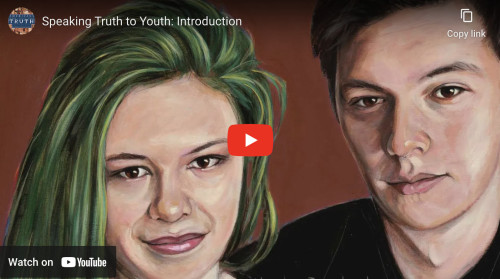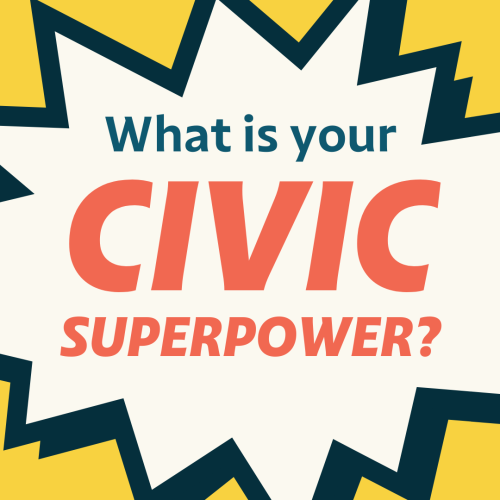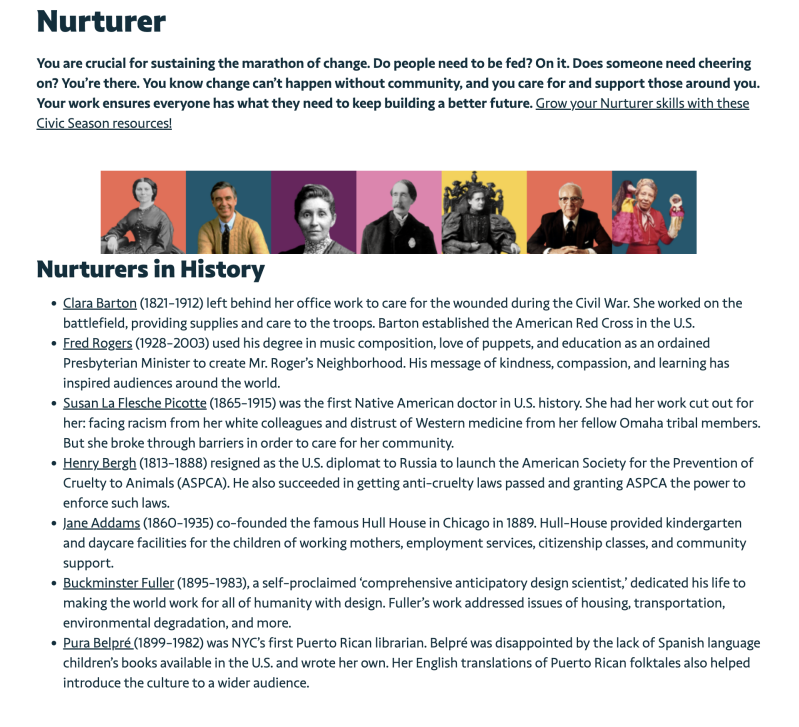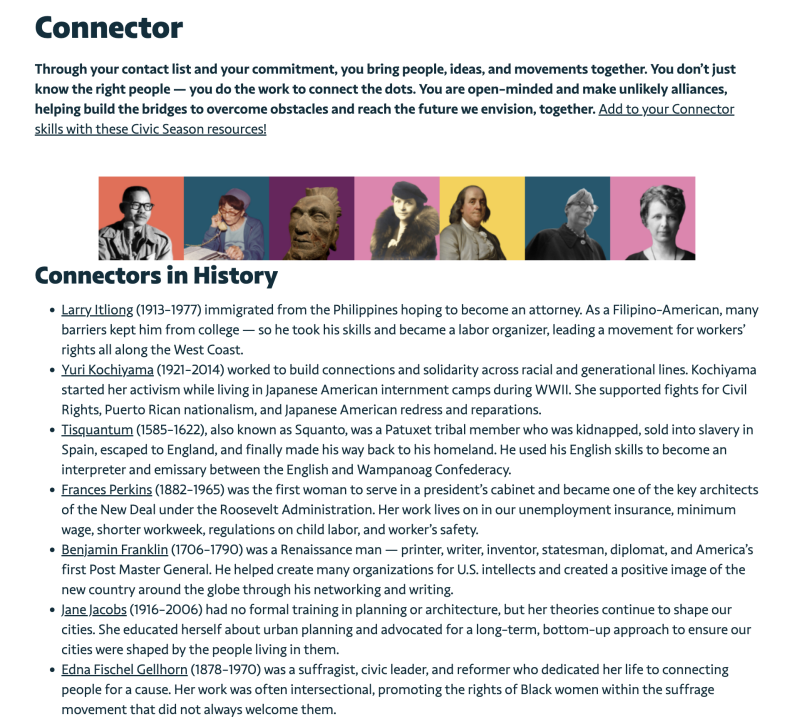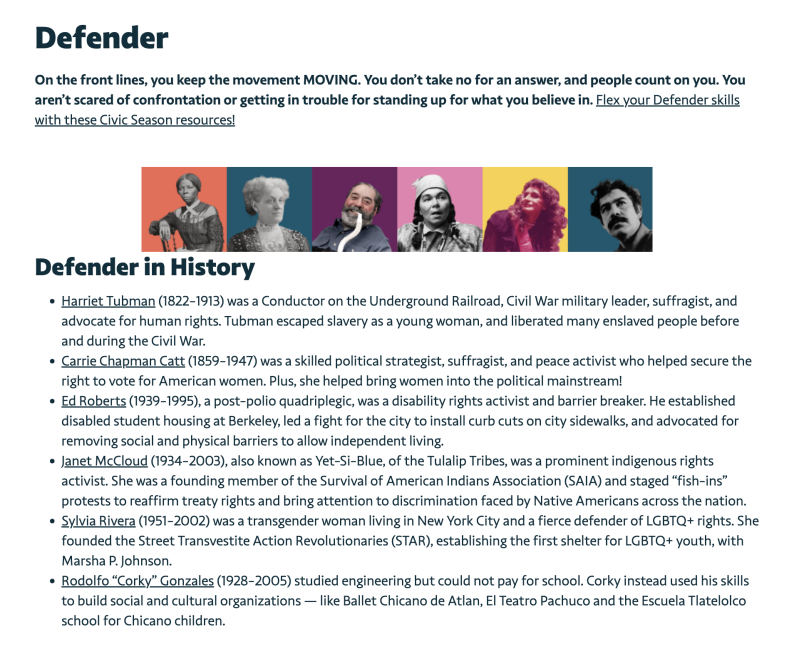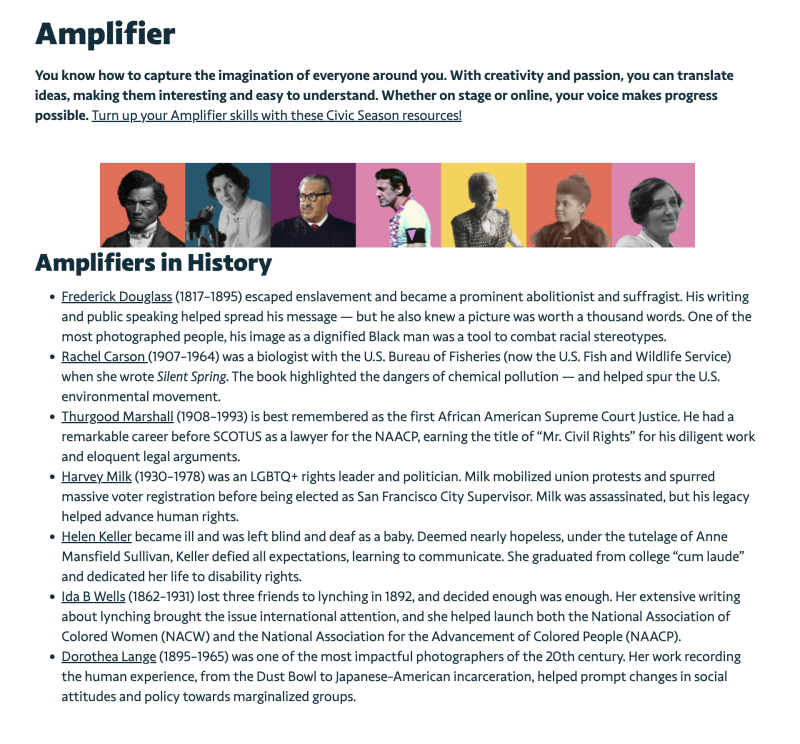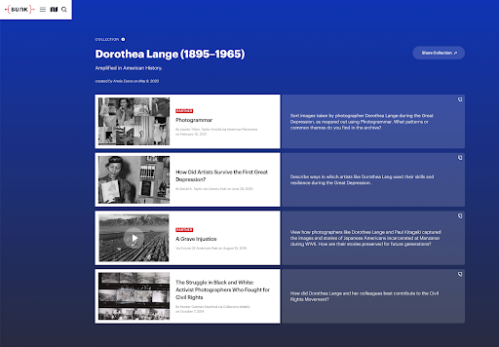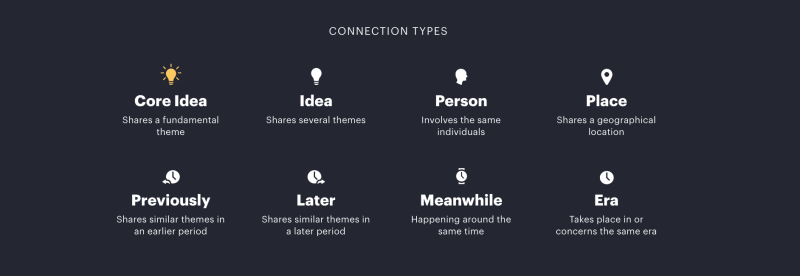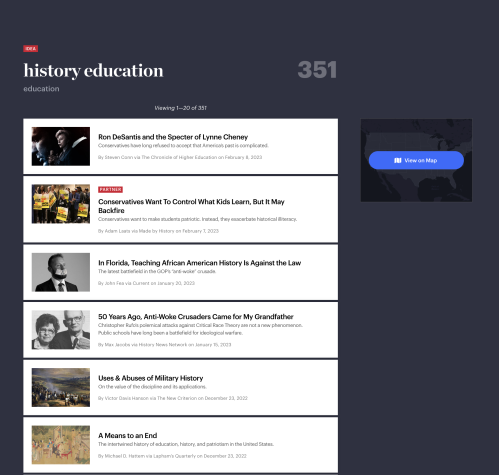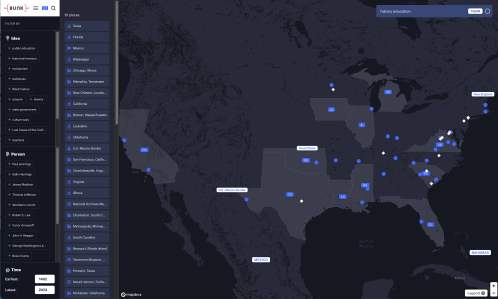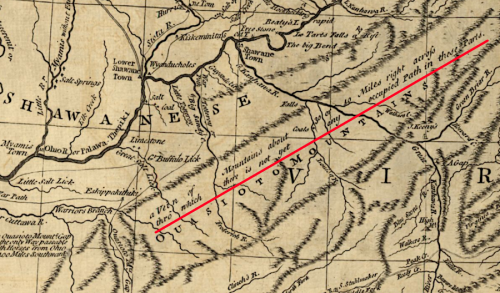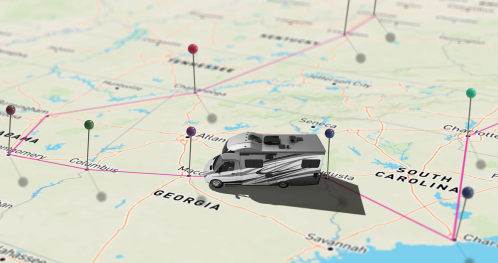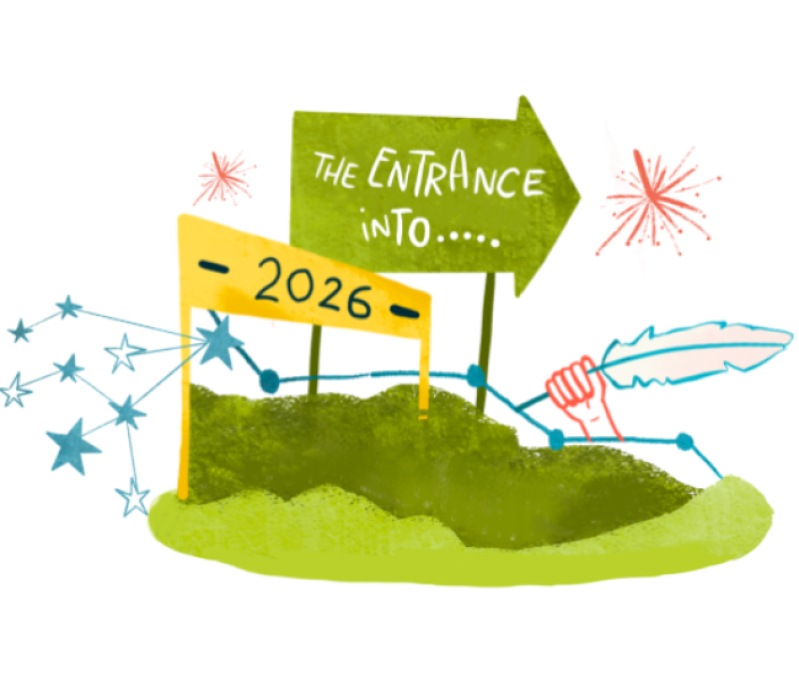This work by New American History is licensed under a Attribution-NonCommercial-ShareAlike 4.0 (CC BY-NC-SA 4.0) International License. Permissions beyond the scope of this license may be available at newamericanhistory.org.
The Civic Season 2023: Discover Your Story
Read for Understanding:
The 3rd Annual Civic Season from our friends at the Made by Us coalition challenges us all to Discover Your Story! This includes making space for more stories about the past, more voices from the present, and more input into what an annual tradition for civic participation could look like. The Civic Season is a “choose your adventure” experience from Flag Day to Juneteenth to July 4th, and beyond. When the Civic Season kicks off in June 2023, you can explore a multitude of offerings and activities filtered by topic, location, and format, designed to support your personal exploration into history and democracy. What role will you play?
Key Vocabulary
Amplifier - a person who supports, uplifts, or brings out the best in a person or organization, drawing attention to their merits or talents.
Changemaker - a person who is leading or taking creative action to solve a social problem.
Connector - someone with strong social capital who brings ideas, people, and movements together, a person who works to build networks of support for people and communities.
Defender - a person who works on the front lines of a social movement or cause, who is an organizer or leader of a movement, and is willing to take on legal or social challenges to support their beliefs.
Nurturer - someone who cares for others, offering food, protection, support, encouragement, or training.
Portrait - a painting, drawing, photograph, or engraving of a person, especially one showing only the face or the head and shoulders.
Travelogue - a talk, diary, blog, slideshow, podcast, or film about travel or a particular person's travels.
Engage:
What’s your story?
Your story is still being written. Who better to tell your story than YOU? This year, the Civic Season is encouraging you to find new and engaging ways to tell your story. The Made by US coalition developed an online quiz to help you determine how to tell your story.
Throughout history, young people and changemakers have documented their lives in letters, diaries, photographs, and art. Artist Robert Shetterly documents some of these stories in a series of portraits - Americans Who Tell the Truth. Each portrait includes an image of the person whose life inspired the artist, including a quote from the subject and a short narrative about their life. There is also a section dedicated to young activists. Take a few minutes to explore these images and read about a few of the subjects of the portraits.
Some of the subjects of the portraits discuss their stories on video. You can watch those here.
Creating a self-portrait is one way you might tell your story. Using paint, ink, or digital drawing tools, create a self-portrait, including a quote and short narrative description related to your story. What would you want your future 2026 self to share as the nation celebrates 250 years? Please share your work if your teacher or a trusted adult permits. You may email us at editor@newamericanhistory.org or share via social media (links on our pages). Be sure to tag us as you share!
Your teacher may ask you to record your answers on an exit ticket.
Explore:
How will you share your story?
If self-portraits aren’t your medium of choice, think about other ways you might share your story and inspire others. Diaries, journals, memoirs, music, videos, or photo essays are all ways others have shared their stories throughout history. Once you have completed the Civic Season quiz, you may find inspiration in the stories of other Nurturers, Connectors, Defenders, and Amplifiers.
Spend some time exploring their stories here in the Civic Season gallery. Scroll down below the quiz to view examples of each Super Power category.
Use the corresponding hyperlinks from the website to explore more!
Build a Bunk Collection!
Looking for more? Select one or more of these stories to pursue further using Bunk. With Bunk, you will find other content, people, and topics related to the Nurturers, Connectors, Defenders, and Amplifiers you admire most. You can even build your own Bunk Collection to share out during #CivicSeason.
We created one here about photographer Dorothea Lange. Share your collection with us, and via social media using #CivicSeason, and challenge your friends and classmates to do the same!
Your teacher may ask you to record your answers on an exit ticket.
Explain:
Who decides which stories we do and don’t learn about history in school?
In recent years, much has been published about what we do and do not teach our young people about history, civics, and geography. What is not always clear to students, parents, and community members is how those decision-making processes work at the local level.
- How do schools, school divisions, and state governments design curricula for each subject a student learns in school?
- Who decides on state standards, and who enforces them?
- How do local educators, curriculum specialists, and administrators create a local curriculum based on their state standards?
- Does your local school district adopt textbooks, and if so, how are they selected and funded?
- For each of these decisions, who are the experts being consulted in the writing of textbooks or other curriculum materials?
- Do parents, students, or community members have an opportunity to weigh in on all of these decisions, and if so, what is the procedure for them to share their opinions?
Take a few minutes to explore the topic of History Education using the link above, or select, "View on Map" to find stories that take place closer to your own home. Follow a few connections to see if you might get a better understanding of how schools have tackled history education over time, specifically in more recent years.
Interview a local school board member, K12 curriculum specialist, college history professor, or state board of education member using these same guiding questions. Create a short TikTok video, Instagram post, or infographic explaining what you learned about the process in your state or community. Start a dialogue with your peers, discussing your feelings about the history education you have received in the past, and what questions or topics you are most interested in exploring further. We’d love to know your thoughts about ALL of the above! Reach out to us via email at editor@newamericanhistory.org or via social media links on our pages. Be sure to tag #CivicSeason to keep the conversation going with other Nurturers, Connectors, Defenders, and Amplifiers.
Your teacher may ask you to record your answers on an exit ticket.
Elaborate:
Where might we look to uncover some of the untold stories of our past?
Historian Ed Ayers shares some thoughts about this topic in a blog post called All History is Local. Take a few minutes to explore this piece as you think about your own community.
“Local history, then, serves us best when it is woven into the larger patterns of history.”
- How does your community fit into the larger story of American history?
- If you did not learn about local history as part of your formal education, what other opportunities for learning about it do you observe on the cultural landscape?
Spend some time exploring one street within your community. Look for historic markers, street signs, schools, or names on local businesses. How do these locations represent pieces of history within your community? Your local library or historical society may be the place to start to begin to answer these questions. Try searching local newspaper archives for the people or places you noted on that one street to see if there is more information available about your local community. If you know older neighbors or relatives who have lived in your neighborhood, ask how certain streets or buildings came to be named over time.
Create a postcard or social media post sharing something about one of the places you recently discovered in your neighborhood. Free tools like Canva, Visme, or Google Slides may be helpful to create and share your ideas. Be sure to include #CivicSeason so we may follow along as you explore your local history.
Your teacher may ask you to record your answers on an exit ticket.
Extend:
How might museums and historic sites help amplify the stories we didn’t learn in school?
Over the course of 2022 and 2023, historian Ed Ayers is visiting places where significant history happened, and exploring what has happened to that history since. He is focusing on the decades between 1800 and 1860, filing dispatches about the stories being told at sites both famous and forgotten. You can follow his travels in the Discovering America series.
Select one or more of these travelogue entries to explore.
- What did you find SURPRISING?
- What did you think was most INTERESTING?
- What was the most TROUBLING?
Now it is YOUR turn-select a local history site and try your hand at crafting your own blog post or review of a local historical site. Tell us why we should visit it, and share your views on how the history is being interpreted. Bonus points for interacting with the tour guide or other visitors!
You may find a variety of ways to share these, either via social media, or free sites like Medium, Wix, or WordPress We’d love to read your first post - share it by using #CivicSeason and share a link via social media.
Your teacher may ask you to record your answers on an exit ticket.
Citations:
Ayers, Ed. “All History Is Local.” Medium, February 26, 2021. https://medium.com/new-american-history/all-history-is-local-be096696291b.
Ayers, Ed. “The Discovery of America.” Medium, March 15, 2023. https://medium.com/new-american-history/the-discovery-of-america-c5e4f4dfa867.
Evans, Anne M. “Dorothea Lange (1895–1965).” Bunk Collection. Accessed May 10, 2023. https://www.bunkhistory.org/collections/n1wsdr.
“History Education.” Bunk. Accessed May 10, 2023. https://www.bunkhistory.org/tags/ideas/history-education.
“Quiz: Find Your Civic Superpowers.” Civic Season, May 4, 2023. https://www.thecivicseason.com/quiz/.
Shetterly, Robert. “Americans Who Tell the Truth.” Americans Who Tell The Truth, April 7, 2023. https://americanswhotellthetruth.org/.


